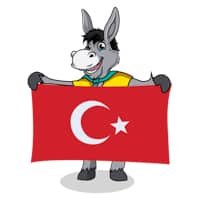As someone who has spent over 12 years living in Türkiye and is married to a Turk, I’ve come to know this beautiful country in a way that goes beyond the typical tourist experience. Like many of us, you might be wondering, “Do people speak English in Türkiye?”
I’ve asked that question myself, especially when I first arrived. Over the years, I’ve learned a lot about the languages spoken here, and I’m excited to share my insights with you. Let’s explore whether English is widely spoken and what you might encounter as you navigate this incredible country.
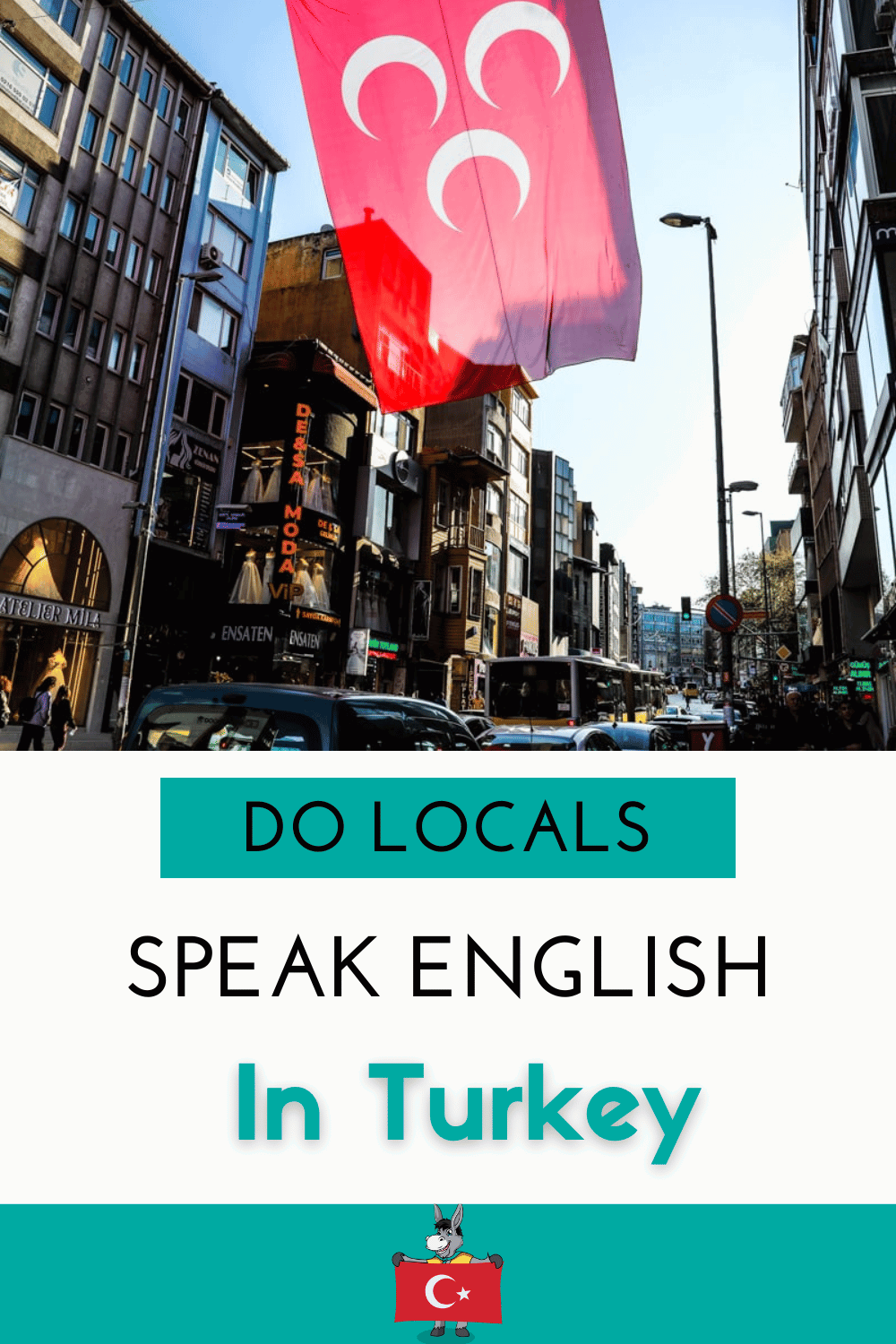
People do speak English, but not everywhere, and not everyone. It depends on where you go as to how much English will be spoken. For instance, if you go to a tourist resort on the south coast, like Bodrum, Fethiye, Antalya, or Marmaris, you won’t struggle to find plenty of people who speak English. In fact, the majority of people will speak English to you pretty well.
However, other places, including Istanbul, can be mixed. So, let’s explore this subject a bit more.
Skip Ahead To My Advice Here!
How Much English Is Spoken In Turkey?

If you take the country as a whole and bear in mind that it’s a massive country, you’ll find that English proficiency, in general, is low. Now, that might be surprising, but the south coast resorts, Istanbul, Izmir, Cappadocia, and Ankara, only make up a small percentage of the country’s landmass. The rest is either off-the-beaten-track, rural or more traditional. That’s what drags the percentage down a little.
In general, it’s said that between 15% and 20% of the population have a basic level of English. However, that is likely to rise because younger generations are more influenced by Western culture and learn English as a result. It’s more likely to be older generations who don’t speak much English.
According to the English Proficiency Index, Turkey is 66th out of 111 countries in terms of English speakers.
But is that a true picture?
Again, it really depends on where you go and when you go. For instance, most touristic workers from the southeast of the country go to the resorts further to the west during the summer and then go back home during the winter. So, if you venture to Gaziantep or another southeastern city in winter, you’re likely to find more people who speak English than during the summer months.
Can you see how it’s not entirely so black and white? Yet, however you spin it, you won’t struggle to get by, and there’s always Google Translate, right?
Can You Manage With Just The English Language In Turkey?
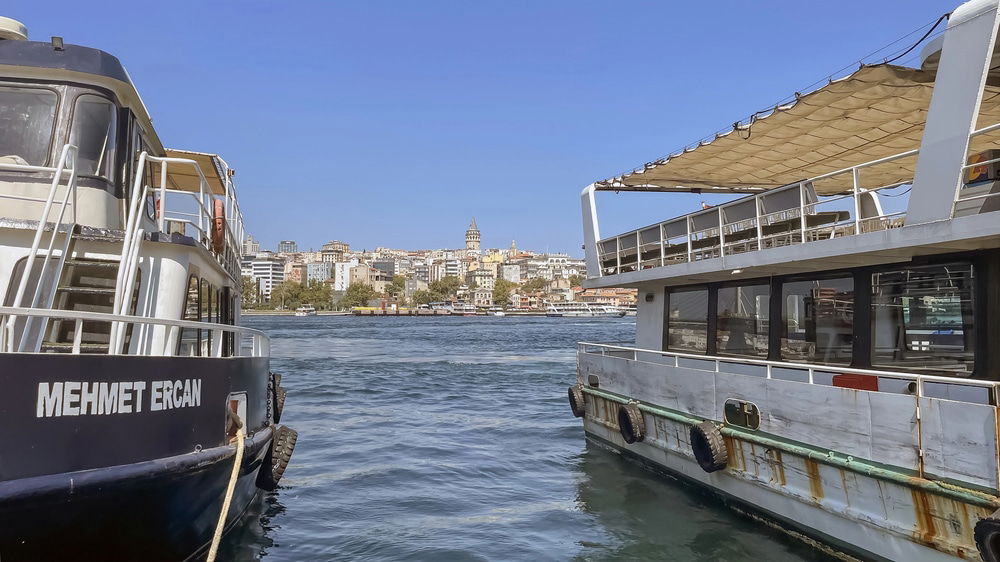
I’m going to say it again – yes and no!
If you live in Marmaris, Bodrum, Fethiye, Antalya, and even Izmir to some degree, you’ll probably manage without having to buy a phrasebook. Especially during the summer months. But if you go elsewhere, even Istanbul, and particularly out of season, you might find a few Turkish words serve you well.
There is also the question of whether you should rely on English in a country that doesn’t have the language as its first. Really, no, you shouldn’t, not if you’re planning on staying for longer. For a holiday? Sure. It’s expected. But for longer stays, I’d really suggest you try to learn some words, even if they are just the basics. People will appreciate it, and it will make your life a little easier.
What Is The Official Language Of Turkey?
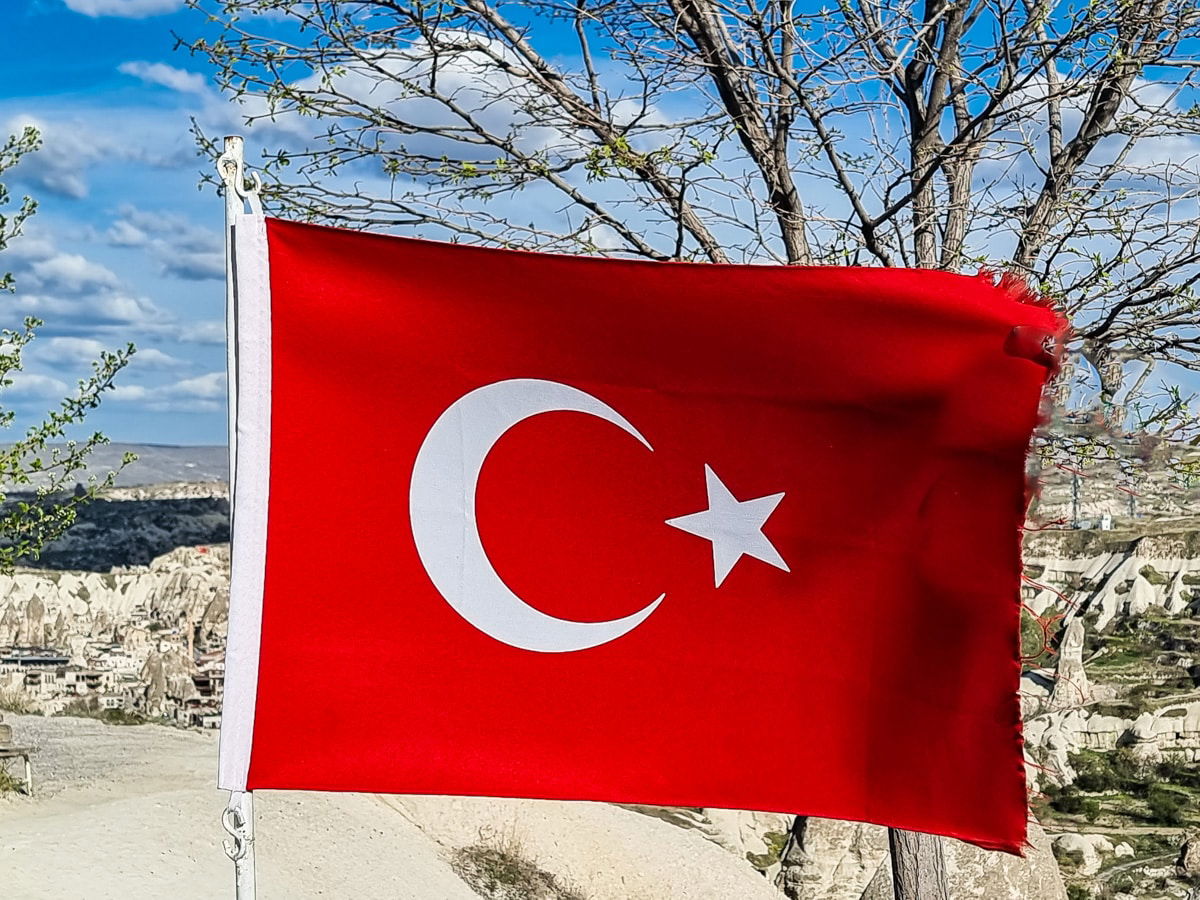
Unsurprisingly, Turkish.
That’s the official language, at least. However, there are other languages you’ll hear relatively commonly.
People Also Speak The Kurdish Language
If you go to the southeast of the country, you’ll hear Kurdish spoken occasionally.
The Arabic Language Is Also Widely Spoken
In some other places, you might also hear Arabic. This is likely to be the case in Istanbul in particular, which has a very diverse population. In some places, you might hear a mixture of Turkish and Kurdish.
Remember that Türkiye is surrounded by European and Middle Eastern countries, and its history also involves the Silk Road during Ottoman times. That means you’ll find many influences in language, architecture, food, and history. It really just adds to the enjoyment.
Just like in many other countries, you’ll also hear different accents. This might not be instantly recognizable if you don’t know the language, but once you learn a few words, you’ll notice that different regions say them slightly differently.
Brands We Use And Trust
Will People Speak English
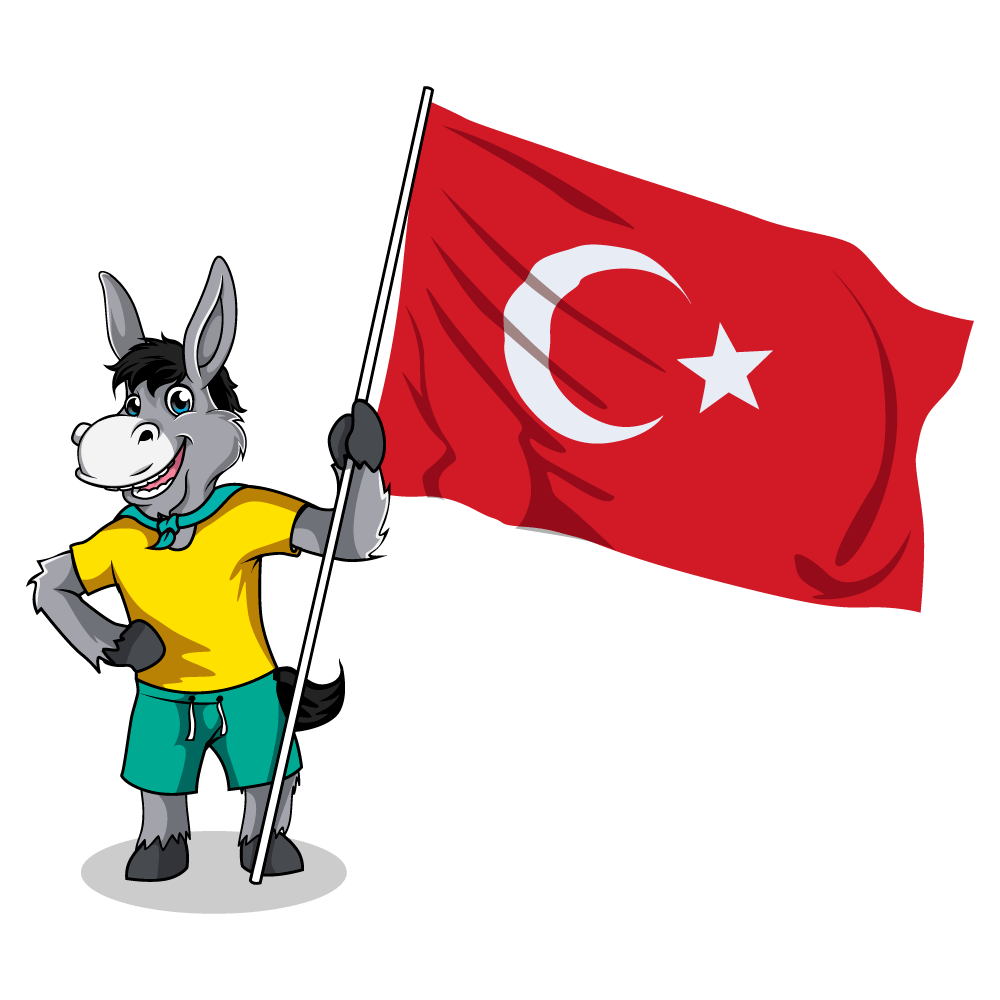
While English isn’t widely spoken across the country in normal life, it is very commonly heard in tourist resorts.
Where Is The English Language Spoken In Turkey?
English is widely spoken in these areas:
English In Istanbul
As the largest city and a cultural hub, Istanbul sees a significant influx of tourists and expats all year around. Many locals, especially those working in hospitality, retail, and tourism, speak English. The historic areas like Sultanahmet and bustling neighborhoods such as Taksim are filled with English-speaking guides, restaurants, and shops, making it easier for travelers to navigate the city. You’ll also hear Arabic widely spoken in these areas, as the city sees a large number of Arabic visitors.
However, if you venture away from these areas, particularly toward the more residential parts of the city, you’ll notice that English is less commonly spoken. For instance, there will be shops and restaurants where nobody speaks English.
English In Antalya
This coastal city is a popular destination for international tourists, particularly in the summer months. Due to the heavy tourist traffic, many service providers — from hotel staff to tour operators — are fluent in English. The picturesque beaches and resorts attract visitors from around the globe, creating an environment where English is commonly spoken.
However, many people visit during the winter, too, as the weather in this part of the country is usually relatively mild. For that reason, although you won’t hear English quite so much at that time, you won’t struggle to find an English speaker.
English In Bodrum
Known for its stunning coastline and vibrant nightlife, Bodrum attracts a mix of local and foreign visitors. Many beach clubs, eateries, and boutique hotels cater to international clientele, and English is widely used in the tourism sector.
Additionally, the expat community here has grown over the years, further enhancing the prevalence of English. For that reason, English is spoken here very widely, all year around.
English In Marmaris
Marmaris is in the same situation as Bodrum. This coastal area enjoys a large amount of tourism during the summer months, but it’s also relatively busy during the winter nowadays. While not on the same level, many bars, restaurants, and shops are still open during the winter months.
There are also many international visitors at New Year in particular, and many expats who live in the town all year around. As such, you won’t struggle to find someone who speaks English.
English In Fethiye
Another coastal city with a large expat community is Fethiye. During the summer, this area is very busy with tourists, but people also visit during the winter months for a chilled-out time, enjoying the mild weather.
Like Marmaris and Bodrum, Fethiye is a little quieter during these months, but many people speak English, and you’ll find many bars and cafes that cater specifically to international guests.
English In İzmir
As a vibrant metropolis on the Aegean coast, İzmir has a growing number of English speakers, particularly among the younger population and in the education sector. The city is home to several universities where English is spoken, making it a hub for students and expats.
In the bustling Alsancak district, in particular, you’ll find cafes and restaurants where English is frequently used.
English In Cappadocia
This region, famous for its unique landscapes and hot-air balloon rides, has seen an increase in tourism. Many guides and local business owners in Cappadocia speak English to accommodate visitors from around the world.
So, while Turkish is the official language of Türkiye, these cities reveal a friendly environment where English is commonly spoken, making it easy to dive into the country’s rich culture and history.
Practical Tips For Navigating Language Barriers In Turkey
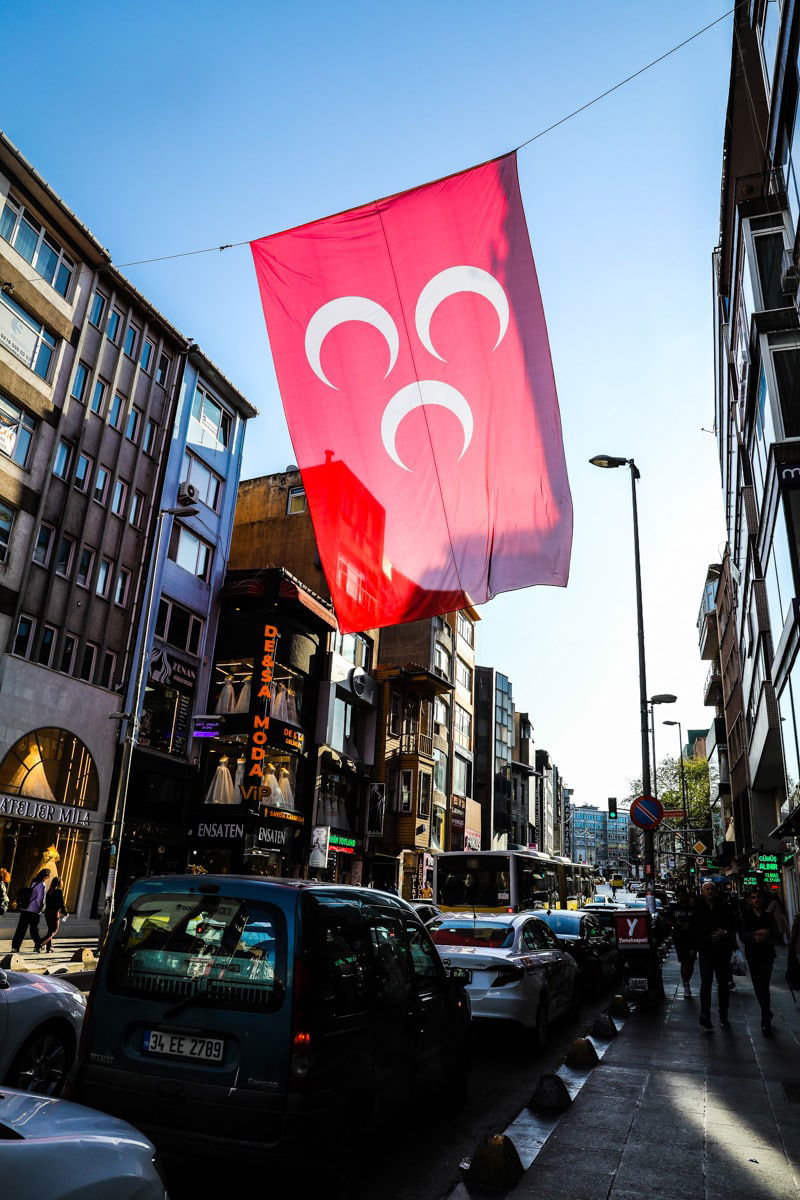
Traveling in a country where you don’t speak the language can be challenging, but with a few practical tips, you’ll find it much easier to get by in Turkey. Here are some handy suggestions to help you communicate effectively and make the most of your trip:
Use Language Apps
Apps like Google Translate can be a lifesaver when you’re in a pinch. Before your trip, download the Turkish language pack on Google Translate so you can use it offline. The app’s camera feature is handy for translating signs, menus, and other written text on the go.
Other Useful Apps
- Duolingo: Great for learning basic Turkish phrases before and during your trip
- Babbel: Offers more in-depth lessons if you want to get a better grasp of the language
- Sesli Sözlük: An online Turkish-English dictionary that’s handy for quick translations
Basic Turkish Phrases To Learn
If you’re traveling away from the main tourist areas, it’s a good idea to know a few phrases. But even if you are right in the middle of a widely English-speaking area, it doesn’t hurt to speak a little Turkish anyway. People will appreciate it!
To help you out, here are some basic phrases to learn and how to say them.
| English | Turkish | Pronunciation |
|---|---|---|
| Hello | Merhaba | Mer-hab-ah |
| Thank you | Teşekkür ederim | Teh-shek-kewr eh-deh-rem |
| Please | Lütfen | Lewt-fen |
| Sorry | Pardon | Par-don |
| Yes | Evet | Eh-vet |
| No | Hayır | High-yur |
| Where is | Nerede* | Neh-reh-deh |
| Where is the toilet? | Tuvalet nerede? | Too-va-let neh-reh-deh |
| How much? | Ne kadar? | Ney-ka-dar |
| Water | Su | Soo |
*The thing you’re asking about goes first and ‘needed’ last. E.g., Hilton Hotel Nerede
Use Non-Verbal Communication
Sometimes, gestures and body language can bridge the gap when words fail. Pointing, nodding, and even using a simple thumbs-up can help you communicate basic ideas. Don’t be afraid to use visuals, like showing a picture of what you need or pointing to items on a menu.
Carry a Phrasebook or Download One
If you prefer something more tangible than an app, a small phrasebook can be handy. Alternatively, you can download a digital version to your phone. This way, you can quickly look up common phrases or words when needed.
Understand Cultural Norms
In Turkey, polite behavior can go a long way. For example, it’s customary to remove your shoes when entering someone’s home or a mosque. Learning a bit about local customs and etiquette can make your interactions smoother and more pleasant.
Rely On English-Speaking Locals
In major tourist areas, many locals speak English, especially those working in hotels, restaurants, and shops. Don’t hesitate to ask for help—most people are friendly and willing to assist you. If you’re ever in doubt, look for younger people, as they are more likely to have learned English in school.
Use Maps And Signage
In tourist-heavy areas, you’ll find that many signs are in both Turkish and English. However, in more rural or off-the-beaten-path locations, this might not be the case. It’s a good idea to have an offline map on your phone or a paper map as a backup. Google Maps is helpful, but apps like Maps.me can be used offline and are just as detailed.
Be Patient And Friendly
When you don’t share a common language, patience is key. Approach each interaction with a smile and a calm demeanor. A little kindness can go a long way, and you’ll find that many people are more willing to help when you’re friendly and respectful.
Language Education In Turkey
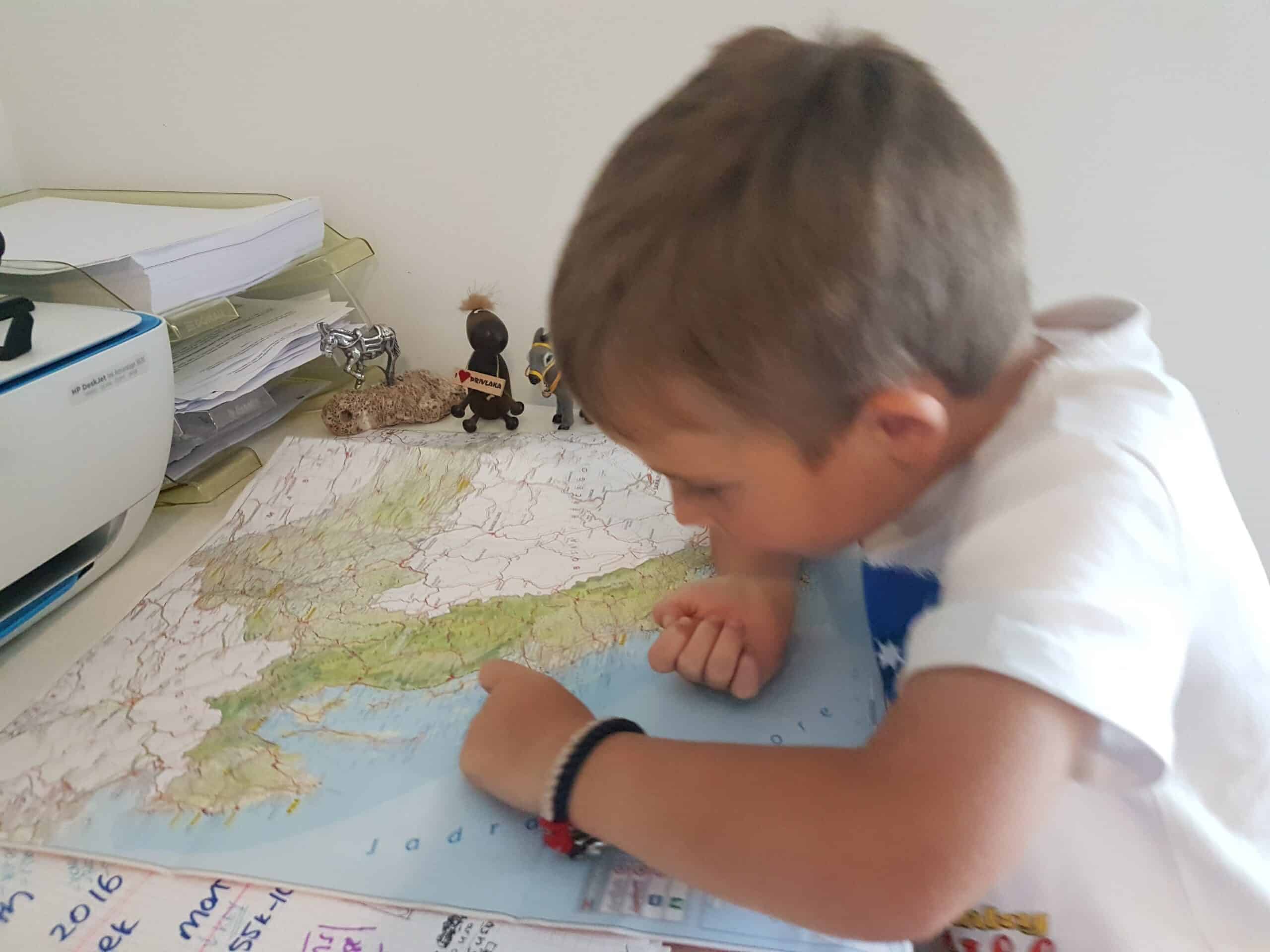
English is widely taught in Turkey, starting from the second grade and continuing through high school. However, how well people learn and use English varies a lot. In big cities like Istanbul, Ankara, and Izmir, students generally get better English education, especially in private schools, which sometimes offer bilingual programs. In these cities, you’ll find more people who are comfortable speaking English, especially in tourist areas.
In contrast, rural areas and public schools often struggle with limited resources, which can affect the quality of English education and lower English proficiency in these regions.
At the university level, some top universities, like Boğaziçi and METU, offer programs in English, and they usually require students to complete an English preparatory year. However, not all universities teach in English, so the extent of English use can vary.
Despite these efforts, Turkey’s overall English proficiency is moderate. The focus on memorization in schools, rather than practical use, is a challenge that the country is working to overcome.
How To Learn The Turkish Language
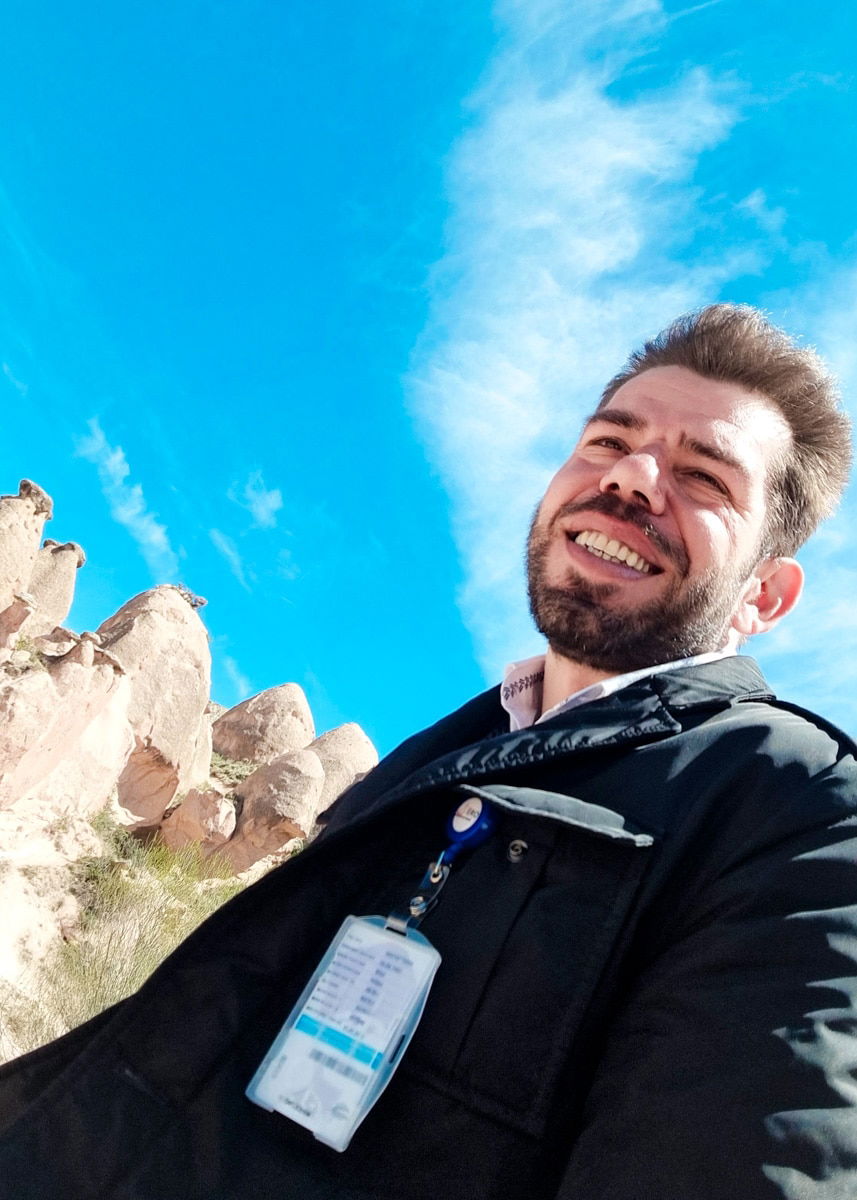
If you want to learn more Turkish phrases, there are plenty of tools that will help you do just that. Who knows, maybe you’ll be able to sit down with a Turkish coffee or cay and have a real conversation with a local!
Language Learning Apps
- Duolingo: A popular app that makes learning Turkish fun through gamified lessons. It covers vocabulary, grammar, and pronunciation in bite-sized modules
Babbel: This app focuses on conversation skills and practical vocabulary, helping learners engage in real-life scenarios from day one
Memrise: Utilizes spaced repetition and mnemonic techniques to help you retain vocabulary and phrases effectively.
Online Courses And Platforms
- Rosetta Stone: An immersive platform that encourages thinking and speaking in Turkish from the start, helping to develop your language instincts
- Busuu: Offers structured courses that include dialogues, writing exercises, and feedback from native speakers
- Coursera: Provides university-led courses in Turkish, often focusing on language structure, culture, and conversational skills.
Turkish Media
- Movies and TV Shows: Watching Turkish films and series with subtitles (like “Diriliş: Ertuğrul” or “Aşk-ı Memnu”) can improve your listening skills and expand your cultural knowledge
- Books: Start with children’s books or graphic novels in Turkish, gradually moving to more complex texts as you become comfortable with the language
Move This Adventure To Your Inbox & Get An Instant Freebie

No spam. Unsubscribe at any time.
Spoken Languages In Turkey FAQs
Do people in Turkey speak English?
Yes, many people in Turkey do speak English, especially in urban areas and tourist destinations and among younger generations. In larger cities like Istanbul, Ankara, and Izmir, you’ll find English spoken in hotels, restaurants, and shops that cater to tourists.
Is English commonly used in rural areas of Turkey?
English proficiency tends to decrease in rural areas compared to metropolitan cities. While some younger people or those in the tourism industry may speak English, it’s less common in smaller towns and villages. Knowing a few basic Turkish phrases can be very helpful in these areas!
In what settings is English most likely to be spoken in Turkey?
English is most commonly spoken in hotels, airports, restaurants catering to tourists, travel agencies, and larger shops. University students and professionals in the tourism sector are also likely to have a good command of English.
Do Turkish people appreciate it if I try to speak Turkish?
Absolutely! Turkish people are generally very warm and welcoming, and they appreciate when visitors make an effort to speak their language, even if it’s just a few basic phrases.
Are there any specific areas in Turkey where English is more widely spoken?
Yes! Major tourist hotspots like Istanbul, Cappadocia, Bodrum, and Antalya tend to have a higher concentration of English speakers due to the influx of tourists. In these areas, you’ll find more staff in restaurants, hotels, and attractions who can communicate in English.
Should I rely solely on English while traveling in Turkey?
While many people do speak English, it’s a good idea to learn some key phrases in Turkish, such as greetings and common questions. This can help you navigate conversations better and show respect for the local culture.
How can I communicate if I encounter a language barrier?
If you face a language barrier, consider using translation apps on your phone, carrying a phrasebook, or relying on non-verbal communication (gestures, pictures, etc.). Many people are patient and will try to help you communicate.
Are there resources available to learn Turkish before my trip?
Yes! There are plenty of great resources available online, from apps like Duolingo and Babbel to YouTube channels focused on teaching Turkish. Local community colleges may also offer courses. Learning even a few phrases can make your journey more enjoyable!
- Best Hotels In Cappadocia, Turkey
- Reasons To Visit Turkey From A Local
- Best Restaurants In Bodrum
- Best Types Of Turkish Kebab To Try
- Best Places To Visit In Turkey For Every Type Of Traveler
- How To Make Turkish Coffee
- Myths & Misbeliefs About Turkey
- Hotels In Cappadocia, Turkey
- Best Food Tours In Istanbul
- What To Pack For Turkey
- 5 Reasons To Visit Gallipoli, Turkey
- How To Get From Istanbul To Cappadocia
- Cappadocia Hot Air Ballon Ride Tips
- Greek Island Day Trip From Southern Turkey
- Turkish Hammam Tips To Know Before You Go
- Tips For Traveling Turkey On A Budget
- Turkey Digital Nomad Visa & How To Apply

